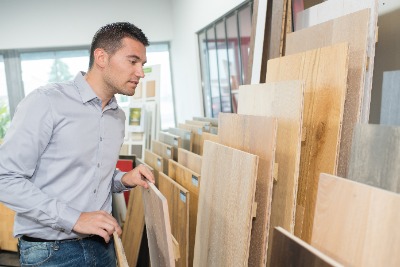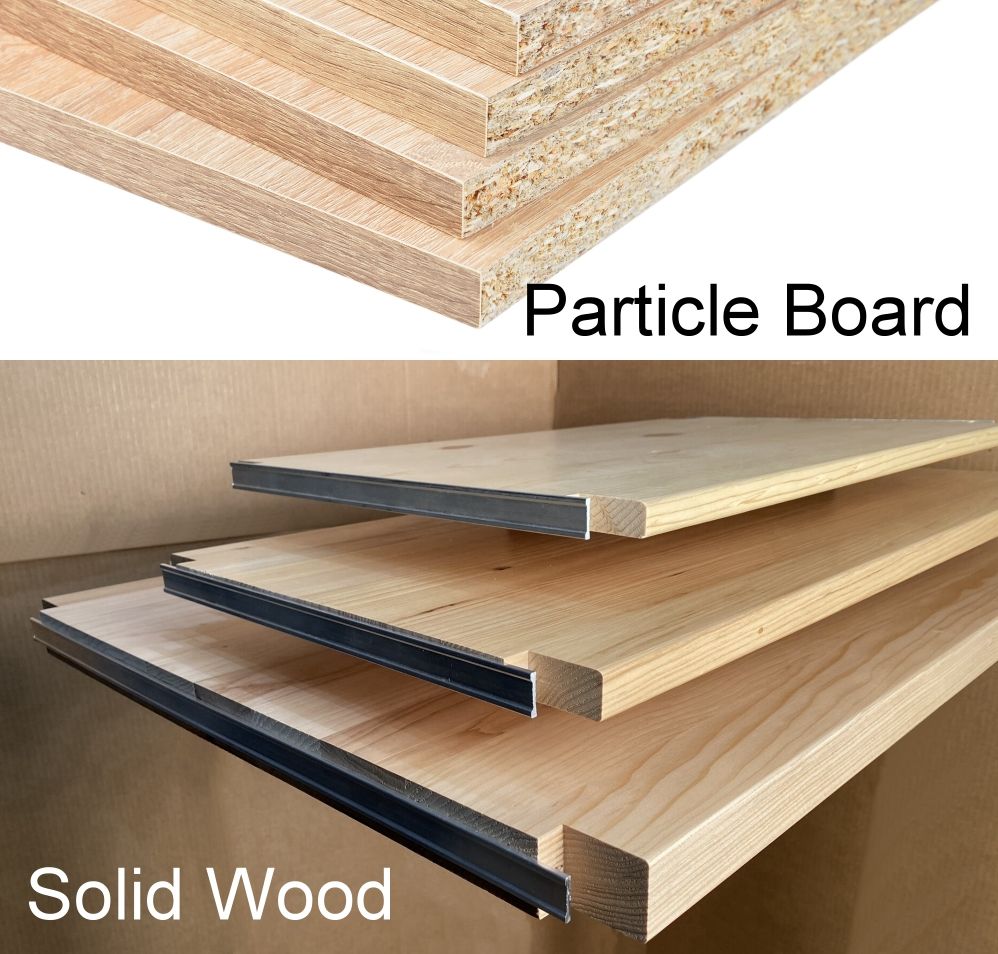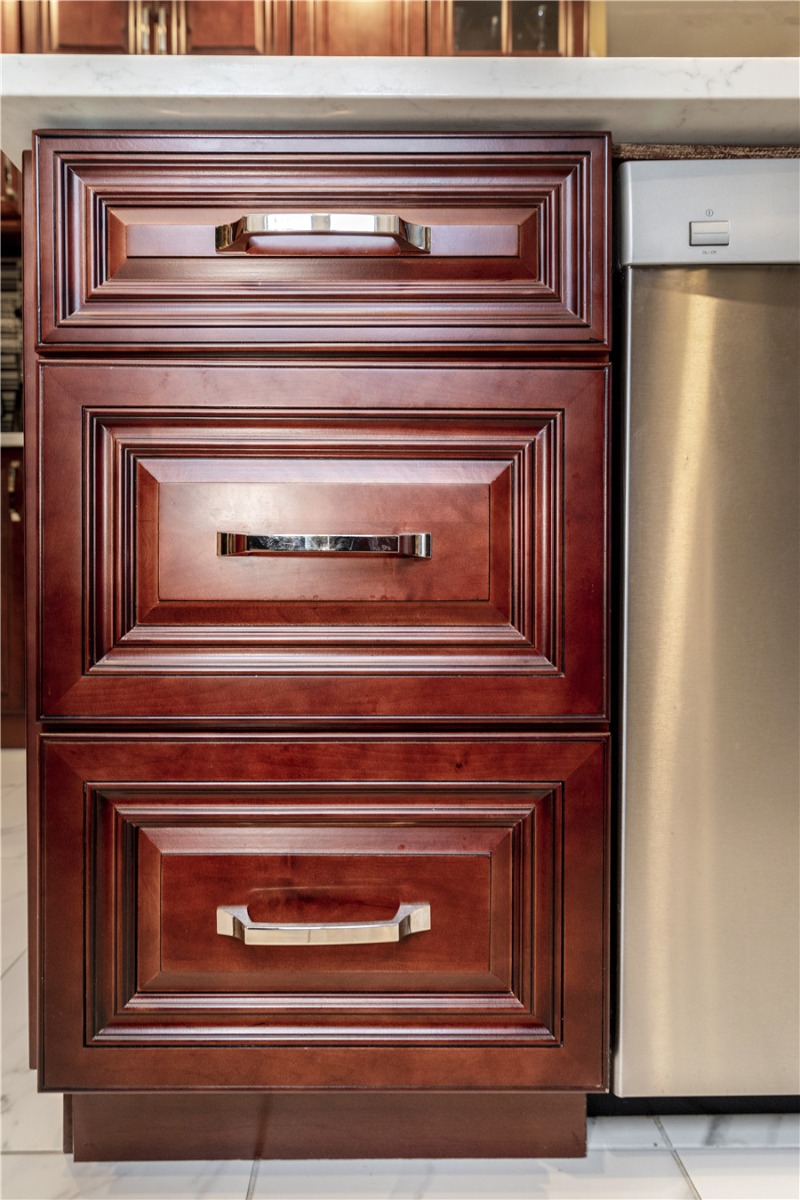Plywood vs Particle Board : Which Is Better?
Those looking to build a new home or remodel their existing one are often unsure about which products will provide the best value. When it’s time to design or upgrade their kitchens, they are likely to have questions about the merits of wooden cabinets versus a particleboard alternative. You can help ease their anxiety and guide them to make the right decision by educating them about their options.
Plywood is constructed by gluing sheets of log-cut wood together in a cross-grain pattern. The cross-grain method helps to make plywood more durable than a solid cut of wood. After the wood sheets are pressed into a composite, they are covered with a veneer.
Particleboard is a composite made by binding together wood chips and wood particles with glue or resin. Next, the composite product is made into a wood sheet by using either pressure or a mold. The sheet is then “finished” by using wood veneers, a laminate, or by painting.

Construction
Plywood will hold both mechanical and glued joints better than particleboard. Glued joints are actually preferable to mechanical fasteners like nails and screws, and that’s why higher-end cabinetry uses glued construction.
Durability
Particleboard can be durable if it’s constructed properly. However, it does scratch and dent more easily than plywood, so will not hold up as long as wooden cabinets.
Strength
Once again, proper manufacturing can improve particleboard’s strength, but plywood can hold more weight due to the way the individual sheets of wood are interwoven. Wooden cabinetry is also lighter than particleboard, and if you plan to hang large upper cabinets from a soffit, your installation crew will have an easier time moving and maneuvering a plywood box.
Moisture-Resistance
Resistance to moisture is especially important in a room where water plays a big role. In the kitchen, water is used frequently – either to cook or wash dishes – and there’s always a risk the sink could leak. But steam from boiling water or even high humidity can also affect the materials used for cabinets. Compared to particleboard, plywood is much more water-resistant, and even though water use could eventually impact wooden cabinets over time, plywood’s structural integrity will remain sound for a longer period than a cabinet made from particleboard. Particleboard is susceptible to swelling or warping in high-moisture environments.

Quality Variation
Particleboard is a product sold based on industry-set quality-control standards. Particle size and density are graded so you always know what you’re getting. There’s no such standardization in plywood construction, and you may run into trouble when the boards are delivered.
Voids or holes in the plywood can make mechanical joint construction using nails or screws a difficult or near-impossible task. If you were to find holes or voids in the plywood you purchased, you’d need to return it. You’ll also need to return plywood where the grain is running in the wrong direction. If you need to return faulty plywood and wait for a new delivery, that means lost time, and lost time on a construction project equals lost money.
Finishing
It’s easier to apply finishes to particleboard due to its flat and slick surface, which never needs to be sanded. Plywood has a rougher surface because of grain patterns, so it will be more time-consuming to properly finish wooden cabinets.
Cost
The materials used to make particleboard are considered to be waste, so they’re cheaper than using solid sheets of wood. Additionally, the manufacturing process for particleboard is more streamlined, which also brings down the cost.
Plywood is more expensive than particleboard, and usually for good reason. But your customers may be limited by their budgets. It will come down to a conversation between you and your clients to determine whether particleboard or wooden cabinets will provide the most value for their projects.
Overall Assessment

Your client’s budget may well determine which option they lean toward, but with better construction, greater strength, and superior water-resistance, wooden cabinetry will offer superior value.
Quality Wholesale Cabinetry and Economical Pricing

Divine Cabinetry is one of the leading cabinet wholesalers in Canada. We provide high-quality wooden cabinets , quartz countertops and accessories. Because we eliminate the middleman, we can offer outstanding prices to dealers, builders, contractors, investors, designers, and realtors. Contact us at (514) 600-5998. You can’t beat our inventory or our value.